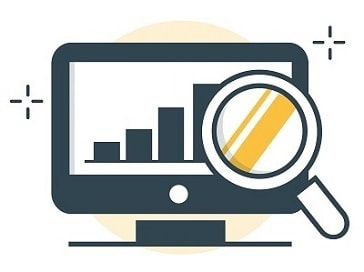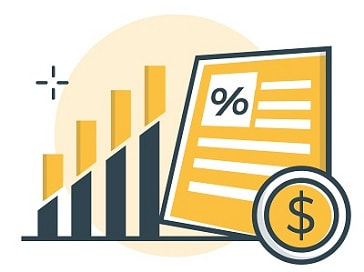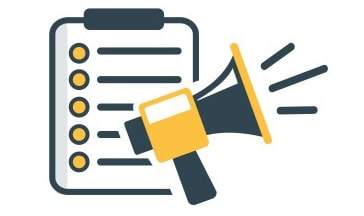Best Overdraft Bank Accounts - Save on Your Interest Costs
We compare overdraft fees and interest from ASB, ANZ, BNZ, Westpac, Kiwibank, Heartland and others side by side
Updated 11 July 2024
Overdraft Fees Summary
- Overdraft interest rates and fees are huge, and being in overdraft for an average of $2,000 a year can cost up to $500 in fees and charges.
- Bank overdraft charges differ massively - Heartland Bank charges the lowest interest and fees (10%), BNZ charges the highest (23.70%) for arranged overdrafts. Look at switching banks to save money if you find yourself in overdraft.
- Worst still, banks are not transparent with the true cost of an overdraft - many add a "customer margin" to their overdraft interest rates; the lower the margin, the better you are as a customer and the less you pay, and vice versa.
- Avoiding 'unarranged' overdrafts will keep costs low, as will transferring savings into an overdrawn account. Knowing your bank balance at all times is key. Managing your money and making a budget is essential to keep overdraft fees to a minimum.
- If you find yourself struggling to keep up, your bank is obligated to help you under the Credit Contracts and Consumer Finance Act - talk to them before making matter worst.
Overdraft fees - the bad and the ugly
Our guide covers:
- With overdraft interest rates as high as 27%(!), an overdraft is, in no uncertain terms, a debt. It may not feel like a debt, but in every way it is. And like other debts, it needs to be managed and repaid.
- Our 10 step guide covers how an overdraft happens, what you will be charged, how to get your bank account in good health and switching to a bank account that leaves you better off. With the right planning and best bank account, saving $2,500 - $5,000+ over 10 years isn't a stretch of the imagination.
Our guide covers:
Overdraft Interest Rates and Fees - Kiwibank vs ASB vs BNZ vs Westpac vs ANZ vs Heartland
|
||||||
Preferential Overdraft |
Not Offered |
Not Offered |
Not Offered |
Not Offered |
Not Offered |
10% |
Authorised Overdraft |
16.90% |
19.50% |
19.95% |
13.95%* |
18.90%# |
10% |
Unauthorised Overdraft |
22.00% p.a. |
22.50% p.a |
23.70% |
19.95% |
27.90% |
16% |
Application fee |
free |
$25 |
$30 |
$25 |
$25 |
Free |
Overdraft limit increase fee |
free |
$25 |
$30 |
$9 |
$25 |
Free |
Overdraft monthly fee |
$5 per month |
$0 |
$0 |
Scaled fee** |
$3/month |
Free |
Monthly Over limit fee (unauthorised overdraft) |
$10/month |
$3^ |
$4/month |
$9/month |
$3 |
Free |
ASB
^ Unarranged overdrafts exceeding $20 when there is no arranged overdraft in place.
Westpac
* 13.95% + 6% on the amount of the agreed overdraft limit used
** $5.00 per month (up to $5k, 0.10% of overdraft limit on overdrafts > $5k)
ANZ
#12.90% p.a. plus 6% on the amount of the agreed overdraft limit
Heartland
All rates and fees based on the YouChoose Account offering
ASB
^ Unarranged overdrafts exceeding $20 when there is no arranged overdraft in place.
Westpac
* 13.95% + 6% on the amount of the agreed overdraft limit used
** $5.00 per month (up to $5k, 0.10% of overdraft limit on overdrafts > $5k)
ANZ
#12.90% p.a. plus 6% on the amount of the agreed overdraft limit
Heartland
All rates and fees based on the YouChoose Account offering
Best and Worst Overdrafts
Banks charge different interest rates on overdrafts. The rate of interest you’ll be charged is clear for most banks, as we outline below:
- Heartland offers the best deal by way of the lowest interest rate as well as no application fees and monthly fees.
- Kiwibank offers the second lowest overdraft interest rate of 12.90% p.a. and the lowest application fee, but to get it you'll need to have your salary credited to your account and have good credit.
- The ANZ charges the highest unarranged overdraft interest - an eye-watering 27.90% p.a.
- We have excluded the TSB and SBS banks until their overdraft fees and interest rates are made clear on their respective websites.
Banks charge different interest rates on overdrafts. The rate of interest you’ll be charged is clear for most banks, as we outline below:
Example: Annual $ Cost of a $2,000 overdraft
The table below demonstrates how an intrerest rate can significantly alter the annual cost of an overdraft, with Heartland offering the cheapest deal due to its longstanding YouChoose bank account offer.
$2000 Overdraft |
Kiwibank |
ASB |
BNZ |
Westpac |
ANZ |
Heartland |
Interest Cost |
$258 |
$390 |
$474 |
$399* |
$378* |
$200 |
Fees |
$60 |
$28.8 |
$60 |
$60 |
$36 |
$0 |
Total |
$318 |
$418.8 |
$534 |
$459 |
$414 |
$200 |
Note, we have assumed a $2,000 overdraft balance for all 365 days in a year - we understand this does not reflect typical account usage.
**In calculating the ANZ and Westpac interest rate, we have used a customer margin of 6%
**In calculating the ANZ and Westpac interest rate, we have used a customer margin of 6%
Overdrafts - 10 Must-Know Facts to Cut Your Costs
Explaining an overdraft - how it happens, and then what happens
|
Know the difference between “arranged” and “unarranged” overdraftsThere is a big difference between the two when it comes to the interest rate you’ll pay.
|
Know your bank balance by having ready access to itYou’ll be far better off when it comes to managing your money if you have instant access to knowing your bank balance. Online banking has gone further with a number of mobile apps you can download to have instant access to your account summary. Beyond this, banks have gone the distance to help customers. Most offer text and email alerts triggered by:
Knowledge is power:
|
Use any savings you have to pay back an overdraftWith overdraft interest rates at 15%+ and after-tax cash deposit returns around 3%, you’re much better off using your savings to pay down an overdraft. Paying $2,000 into your bank account will save you about $300 in interest per year if you find yourself frequently overdrawn, and that’s before all the fee savings. If you need to reorganise your debts, look at balance transfer credit cards as a way of shuffling high-interest debt to 0%.
|
Talk to companies you have contracts with to change the dates of the direct debitsIf you know you’ll be in overdraft before payday, you might as well minimise the time you'll be in the red. If you get paid on the 30th of every month for example, move your direct debits to say the 28th or 29th so that you are in overdraft for as little time as possible. This only works if you budget and don’t spend the money on other things.
|
Talk to your bankEvery bank has a duty to treat its customers fairly under the Credit Contracts and Consumer Finance Act. If you have a big overdraft and switching bank is not an option, call or email your bank and ask them to look at waiving fees and/or reducing the interest you are paying. If you’re barely able to keep up with the payments and feel yourself sinking, you can make a financial hardship application – see our debt help guide. If your bank does not help, look at free debt counselling from the Citizens Advice Bureau - full details can also be found on our debt help guide.
|
Manage Your Money when it gets paidWhenever you get paid, don’t let your money sit there as you then risk spending it on things you don’t need. Instead, consider opening up a basic free bank account for day to day use, transfer a small amount for your needs, and repay your overdraft like it’s a loan or credit card. Prioritise paying your essentials (mortgage or rent, electrical etc) and then other high-interest debt, such as credit cards and store cards.
“If you don’t need or, don’t buy it” is a simple tip which always helps you to get back on your feet. Once you’ve repaid your most expensive debt, you can move on to the next one. Read our Debt Guide for more tips. |
Don’t be an ostrich or think problems will go awayDebt is best controlled and repaid when you are aware of exactly what you owe and to who. If you don’t open your mail and delete emails from lenders without reading them, stop doing that. You want to be aware of your financial position at all times, even if it’s not looking that great and raises anxiety levels. Awareness is the only way to improve your situation. Banks love to charge fees and penalties, so fight back by being in control of what’s going on. If you are really struggling, see our debt help guide.
A budget is essential to managing your overdraft – moving your direct debit dates won’t solve your overdraft. If you take the time and put together a budget, you can identify areas to cut back on and change your spending habits so you can avoid relying on your overdraft. The money you will save from being in the black will be significant. |
Consider getting a “no-overdraft” account to avoid paying monthly overdraft-related feesA basic bank account is a no-frills, no-overdraft current account that is low in fees and benefits. You will still need to be approved and credit checked, but if you’ve got no need for an overdraft it’s probably best to switch to a more suitable product. Talk to your bank about their overdraft-free accounts.
|
Overdrafts are really expensive, and always have beenThe average arranged overdraft interest rate is 20% p.a. and you’re paying monthly fees on top, making the repayments as expensive as credit card debt. The interest is calculated daily, and applied to your balance meaning you can get trapped in a debt spiral. We believe high-interest overdrafts and their endless fees are, sadly, here to stay for the long term.
Banks can make around $1000/year in fees and interest off anyone who finds themselves in a ~$4,000 overdraft more times than not. Paying the interest while trying to get back in the black can be tricky if your finances are not managed properly. |













